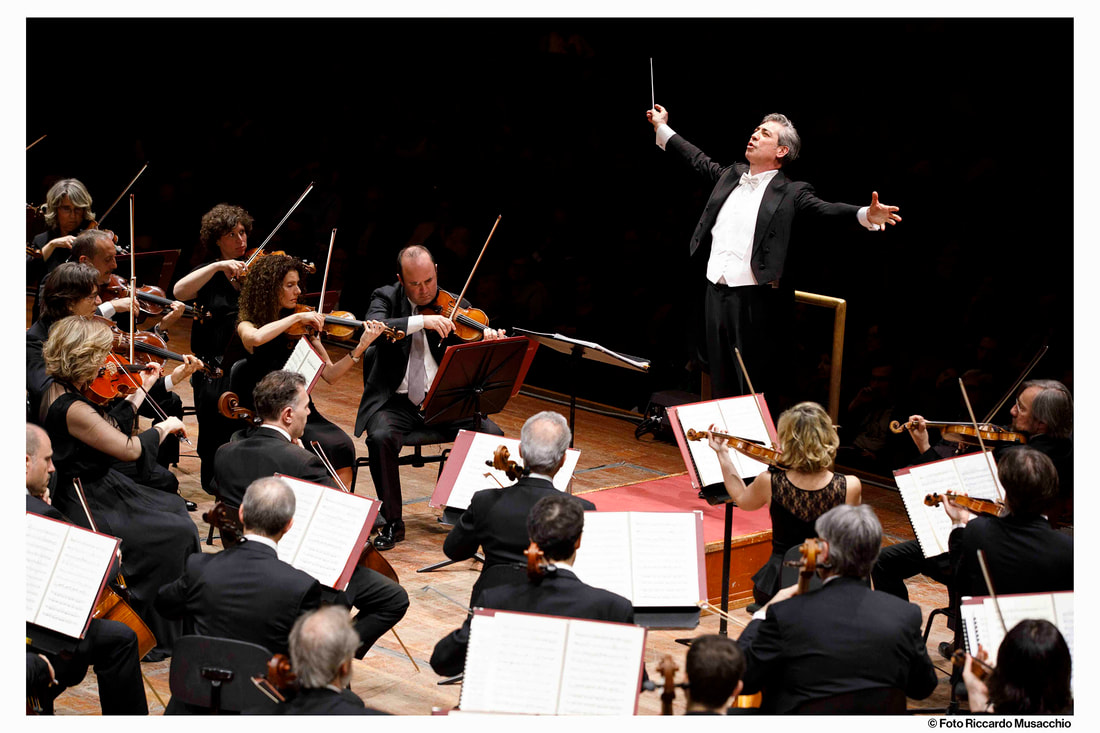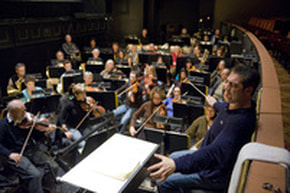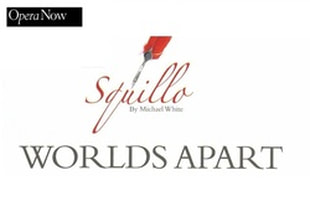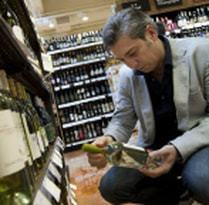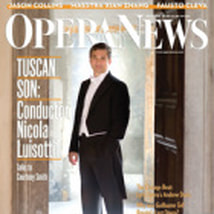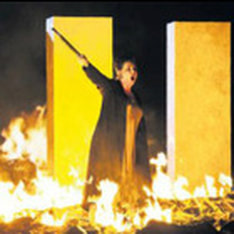In the Media
|
Ritmo Magazine
Your browser does not support viewing this document. Click here to download the document.
|
Opera NowMost opera houses generate some kind of neighborhood economy to serve their needs. It usually involves a local opera restaurant, favored by visiting stars on their nights off because it's discreet enough to unfindable by their fans and pricey enough to be unaffordable by the chorus. Should you stumbled across one of these places, you'll know it by the photos on the walls, which will either be hands outs of Luciano Pavarotti signed in fading felt-tip, or studio shots of Rolex watches with the arm of somebody like Renee Fleming gracefully attached. You'll also find bespoke snaps of conductors grinning awkwardly beside the owner... (read more)
|
Opera NewsVery few things about Italian conductor Nicola Luisotti are conventional. He rejects the idea of classifying the less popular operas of Giuseppe Verdi as "Verdi minore," and in keeping with this stance, he chose for his 2002 Milan debut Verdi's first opera, Oberto, which hadn't been staged there for more than fifty years. He defied expectations again seven years ago when he offered, for his debut with Rome's Orchestra dell'Accademia Nazionale di Santa Cecilia, a rather idiosyncratic concert program in which Leonard Bernstein's Candide overture... (read more) The TimesTo paraphrase the great football sage Bill Shankly, for the conductor Nicola Luisotti the music of Giuseppe Verdi isn't a matter of life and death. It's much more important than that. “People abroad don’t know that Verdi is not just a composer,” he says. “Verdi represents the Italian people. We are today what we are because Verdi was alive.” (read more) |
Opera News Magazine
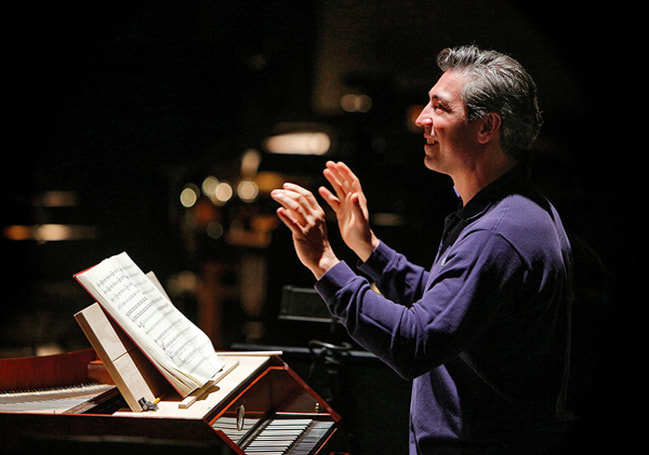
Road Show: Nicola Luisotti
in Madrid
The Italian-born maestro loves to work and relax in the SPANISH CAPITAL.
by Mario R. Mercado.
featured in the April 2016 issue of Opera News:
"NICOLA LUISOTTI, MUSIC DIRECTOR of San Francisco Opera, has just completed a January run of Rigoletto at Madrid’s Teatro Real at the time of our interview.
Madrileños keep famously late hours at such legendary haunts as Bar Cock, a nexus for intellectuals, artists, bullfighters and royalty since the 1920s (Luis Buñuel, Ernest Hemingway, Ava Gardner, Pedro Almodóvar), or the recent Only You Hotel, with its bar-cum-lounge featuring more than thirty types of gin.
Though Luisotti occasionally goes out after a performance, he prefers a quiet evening with his wife or friends. Still, for him, Madrid is far more than a place to work. During the Rigoletto run, he and his wife, Rita, occupied an apartment with views of the terraced, neoclassical Sabatini Gardens, adjacent to the Royal Palace, which—like the opera house—is located at the Plaza de Oriente. Though Madrid is a great European metropolis—“a city with an open mind” he says—its “centro” is relatively compact. Luisotti enjoys walking through the city’s grand boulevards, plazas and parks.
Luisotti’s orbit includes the extraordinary trio of museums, the Prado, Reina Sofía and the Thyssen-Bornemisza, encompassing the contrasting historical and architectural styles of the capital city, from the Hapsburg dynasty of the sixteenth and seventeenth centuries to the succeeding Bourbon monarchs. A walk of less than thirty minutes can take you from the Teatro Real, through the austere beauty of the early-seventeenth-century Plaza Mayor, to the neoclassical domain of the Prado, nearby El Retiro Park and the Reina Sofía, housed in a former eighteenth-century hospital. (read more)
